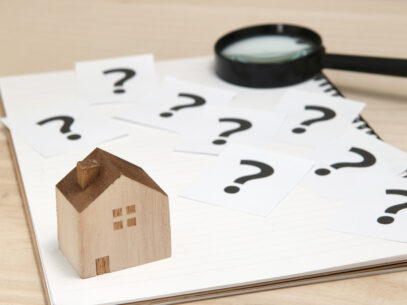
How Do Agents Determine Property Prices
Buyers, Real Estate Information, Sellers
How Do Agents Determine Property Prices: Breaking Down the Comparative Market Analysis on Your Property For those who have experience buying or selling real estate, the term Comparative Market Analysis (CMA) is something you may have heard about in the past. Broken down, the term refers to determining the value of a property for sale, […]
How Do Agents Determine Property Prices: Breaking Down the Comparative Market Analysis on Your Property For those who have experience buying or selling real estate, the term Comparative Market Analysis (CMA) is something you may have heard about in the past. Broken down, the term refers to determining the value of a property for sale, and is an important part of the selling (and buying!) process. For sellers, determining the appropriate listing price is essential to your marketing strategy and contributes greatly to the success in selling for the best price. For buyers, this data is good to know when looking to submit your offer. If a house is priced way above the comparable properties in the area that have sold or are listed for less, you may not want to enter with an offer 50k above asking. But, how DO agents determine property prices? To ensure a home is fairly priced, it’s important to perform an accurate market analysis of the property. This is an extremely important process that REALTORS® receive extensive training on. We ensure our agents have exclusive access to a wealth of data and resources. This ensures that they provide the most accurate information and analysis possible. First thing’s first, in order to do an accurate market analysis on a property, you need to collect all of the information on the subject property. Some of the details you will need for a complete analysis include: In order to get the best estimation of the current house price, you and your agent will be required to collect existing data on the subject property. This typically includes the details concerning the last sale of the home, such as when it was sold and for what price. The previous listing for the home may have some of this data, depending on when it was purchased last. If you do not know the sold price, your agent should be able to locate that data. Agents will also take into consideration the increase in home value for that specific neighbourhood when collecting this information to provide you with an accurate estimate on the current value of your home. Housing prices vary for a list of variables including but not limited to the type of home, size, bedrooms, bathrooms, upgrades, and neighbourhood. This is what makes it essential to compare similar properties when completing a complete market analysis . For instance, if you are selling a 3 bedroom 2 bathroom single family home, you should compare it with other 3 bedroom 2 bathroom homes in the area, instead of the 2 bedroom condominium down the road. When searching for comparable previously sold properties, it’s best to look at comparable sales occurring in the last twelve months, with +/- 10% square footage of the subject property, and the age of the building, which should fall between +/- 5 years of the subject property. Just as your agent would do with comparable sold prices, they will also be taking into consideration current listing prices to complete the most accurate evaluation of your property. They will begin by looking at comparable homes, and take into consideration how many days on the market (DOM) the listing has been active. If the home has been on the market longer than others in the area, it may be safe to assume the listing price is too high, and is deterring interest in the property. When setting the price for your home, this is an important factor to keep in mind, and can help your agent work to market your home more effectively. Figuring out how to complete a real estate market analysis is not only necessary to determine the best price point to list your home, it is essential to get an accurate pre-approval from a lender if you are looking to buy another property for your relocation, as it reflects the amount of equity you hold. The points listed above are only a starting point. This may seem like a daunting task, however, your agent will have complete access to much of the data and formulas needed to provide an accurate evaluation and get your home sold for the best price possible.
Broken down, these are just a few of the major factors our agents consider when evaluating your home for sale. Complete a Thorough Property Analysis
Gather Prior Existing Data
Consider Comparable Sold Prices
Comparable Current Listings
Contact one of our qualified and knowledgeable TEAM members today to schedule your FREE market evaluation.
This listing content provided by REALTOR.ca has been licensed by REALTOR® members of The Canadian Real Estate AssociationThe trademarks MLS®, Multiple Listing Service® and the associated logos identify professional services rendered by REALTOR® members of CREA to effect the purchase, sale and lease of real estate as part of a cooperative selling system. The trademarks REALTOR®, REALTORS® and the REALTOR® logo are controlled by The Canadian Real Estate Association (CREA) and identify real estate professionals who are members of CREA.
powered by curious projects